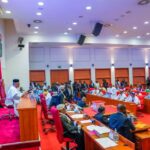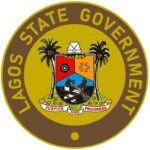Senior Advocate of Nigeria, Mike Ozekhome, has criticized Nigerian state governments for allegedly relying on taxation to develop their respective jurisdictions.
He emphasized the need for policies that encourage production rather than excessive dependence on tax revenue.
Ozekhome expressed these views to journalists on Saturday at Mike Ozekhome Chambers in Abuja, as attended by Nairametrics.
Nairametrics previously reported in November 2024 that the Chairman of the Federal Inland Revenue Service (FIRS), Zacch Adedeji, stated that the former tax law benefited only about three states, which received more than 70% of the Value Added Tax (VAT), leaving other states with minimal allocations.
Adedeji made this disclosure during a public hearing on tax reform bills at the House of Representatives in Abuja.
He explained that the VAT sharing arrangement at that time primarily benefited Lagos, the FCT, and Rivers states, where most corporate head offices are located.
Ozekhome’s Perspective
Reacting to taxation across Nigeria, the senior lawyer emphasized that excessive reliance on Value Added Tax (VAT) has made many Nigerian states less competitive and dynamic.
- He asserted that each state needs to become productive in order to achieve quality development for its residents.
“Which state can you say is outstanding today, apart from having VAT that gives us cheap money? Is VAT really a developmental product? Is that agriculture? I’m asking, is VAT agriculture? Is it that you have produced something? You are just relying on taxation on products from across your area.
“So, to be productive, you need to do what the Asian Tigers did when they were behind us in the 1950s and early 1960s,” he added.
- Ozekhome recommended investing in infrastructure to boost the economy and advised governments to offer “tax incentives” to help companies thrive.
“You need to invest in science and technology. You need to invest in education. You need to invest in job creation.
“The government needs to give incentives.
“You need to provide security. Without security, no one will go to the farm. No one will go to work,” he added.
- According to him, Nigeria is operating without a compass, heading toward an uncertain destination without focusing on production.
- He urged both federal and state governments to encourage local industries over more powerful foreign competitors.
What You Should Know
In June 2025, President Bola Tinubu signed into law four tax reform bills impacting key areas of Nigeria’s fiscal and revenue framework.
- The signing ceremony took place at the Presidential Villa. The four bills include the Nigeria Tax Bill, the Nigeria Tax Administration Bill, the Nigeria Revenue Service (Establishment) Bill, and the Joint Revenue Board (Establishment) Bill.
- They were passed by the National Assembly after months of consultation with various interest groups and stakeholders.
- The tax bills generated significant public debate and skepticism across different groups and regions in the country.
In response, extensive consultations were held to ensure the incorporation of diverse opinions into the legislative process.














![Drama, panic in BBNaija house as masked dwarfs storm in [VIDEO]](https://keeploss.com/wp-content/uploads/2025/08/drama-panic-in-bbnaija-house-as-masked-dwarfs-storm-in-video-330x220.webp)